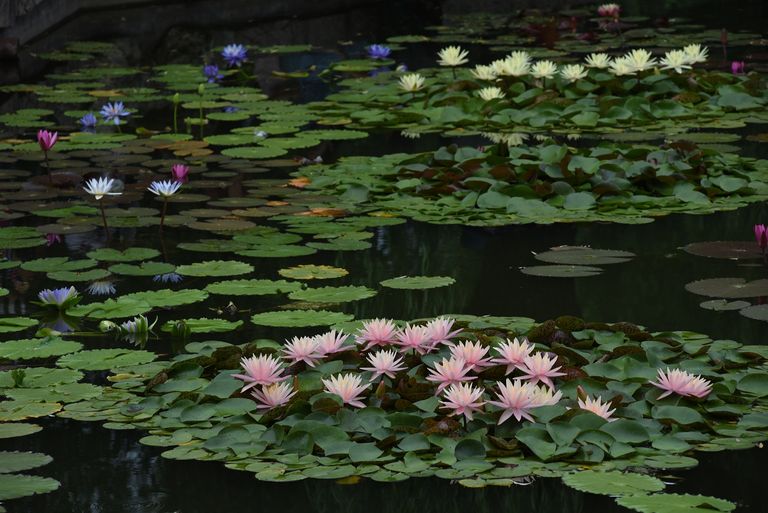
It is a water lily with huge circular leaves, listed as the largest flower in the world. They are found in the waters of the Amazon River in Brazil and Peru and can measure 1 to 3 meters in diameter, at night, in the months of March to July, they bloom
Con el caos reinante en la selva amazónic a causa de los ataques a la flora y a la fauna, así como también a sus aguas y a sus habitantes primitivos, cada vez resulta más difícil vivir fuera de la civilización.
With the chaos prevailing in the Amazon rainforest due to attacks on flora and fauna, as well as its waters and its primitive inhabitants, it is increasingly difficult to live outside civilization.
Sin embargo en el Amazonas brasileño, aún existen once pueblos indígenas que no han tenido contacto con el mundo. Un vídeo reciente (en inglés), y fotos divulgadas por la "Fundación Nacional de protección al Indígena", muestran las canoas, hachas y una choza (o churuatas), en la frontera entre Brasil y Perú. Las autoridades atravesaron 300 kilómetros de selva para monitorear a estas tribus amenazadas por cazadores furtivos y agricultores que invaden sus territorios.
However, in the Brazilian Amazon, there are still eleven indigenous peoples who have not had contact with the world. A recent video (in English), and photos released by the "National Foundation for the Protection of Indigenous People," show canoes, axes and a hut (or churuatas), on the border between Brazil and Peru. Authorities traversed 300 kilometers of jungle to monitor these tribes threatened by poachers and farmers invading their territories.
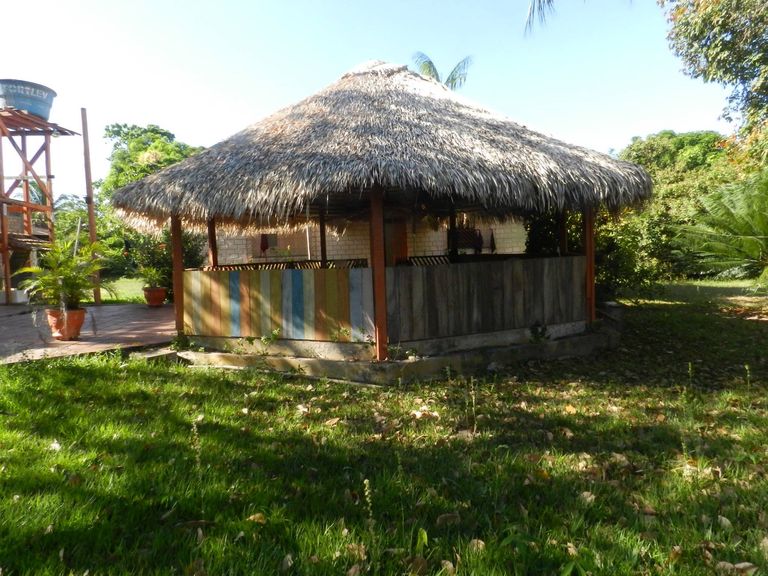
Los Pantanales, regiones donde se encuentran las londras, como las llaman en Bolivia, o arirañas (como les dicen en Brasil), comúnmente conocidas como nutrias gigantes del Amazonas.
The Pantanales, regions where the Londoners are found, as they are called in Bolivia, or arirañas (as they are called in Brazil), commonly known as giant otters of the Amazon
"Las londras" son mamíferos semi acuáticos, anfibios, que viven en cauces de agua en distintos países de Sudamérica, son animales muy carismáticos que se pueden observarse solitarios o en grupos.Tienen un comportamiento muy particular. Sacan la cabeza fuera del agua, curiosean su entorno, zambullen, nadan bajo el agua y rápidamente vuelven a salir por un lugar distinto, se alimentan dentro y fuera del agua de lo que les proveen ambos habitah.
"Londoners" are semi-aquatic mammals, amphibians, that live in watercourses in different countries of South America, they are very charismatic animals that can be observed alone or in groups. They have a very particular behavior. They stick their heads out of the water, they browse their surroundings, they dive, they swim underwater and quickly come back out of a different place, they feed in and out of the water from what both habitah provide them.
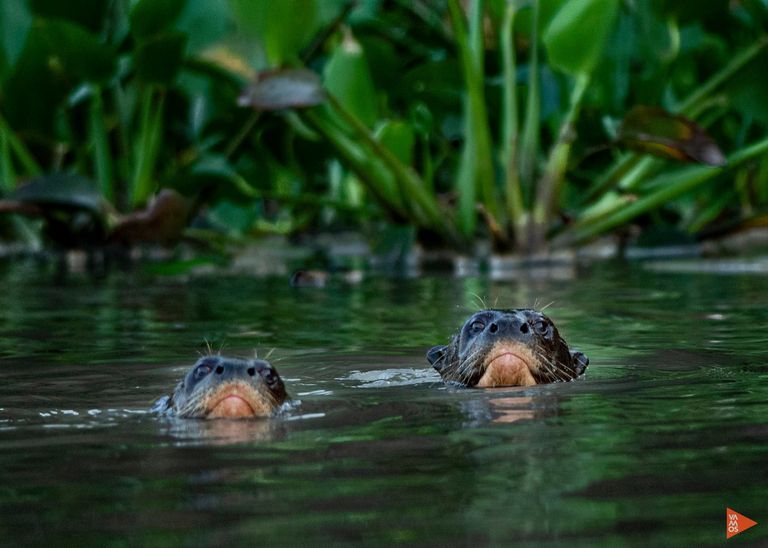
Kukenan o también conocido como "Pico Matawi-Tepuy", pocas personas suben a descubrir sus misterios, su altura es de aproximadamente 2.680 Mts. sobre el nivel del mar y en su cumbre nace el río "Kukenan" del cual podemos ver una hermosa caída de agua con 610 Mts. de altura, que le da la posición del cuarto salto de agua más alto del mundo.
Kukenan or also known as "Pico Matawi-Tepuy", few people go up to discover its mysteries, its height is approximately 2,680 Mts. above sea level and at its summit the "Kukenan" river is born from which we can see a beautiful waterfall with 610 Mts. high, which gives it the position of the fourth highest waterfall in the world.
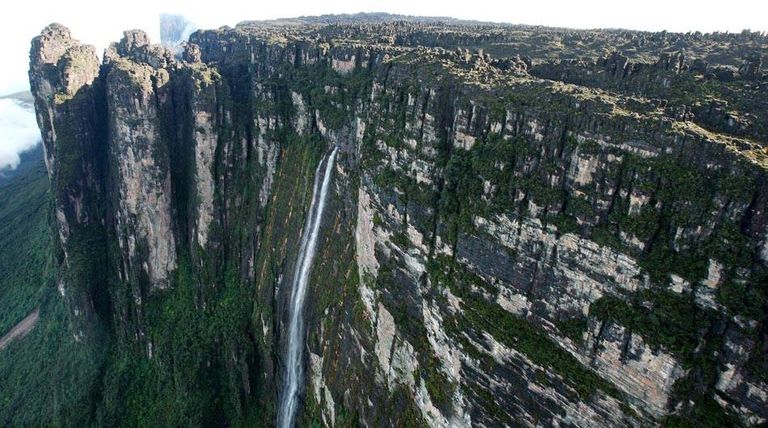
Las aves silvestres son el común denominador de estas selvas espesas y ricas en provisiones para sustentar la rica fauna aviar que prolifera en estas densidades selváticas
Wild birds are the common denominator of these thick forests rich in provisions to sustain the rich avian fauna that proliferates in these jungle densities
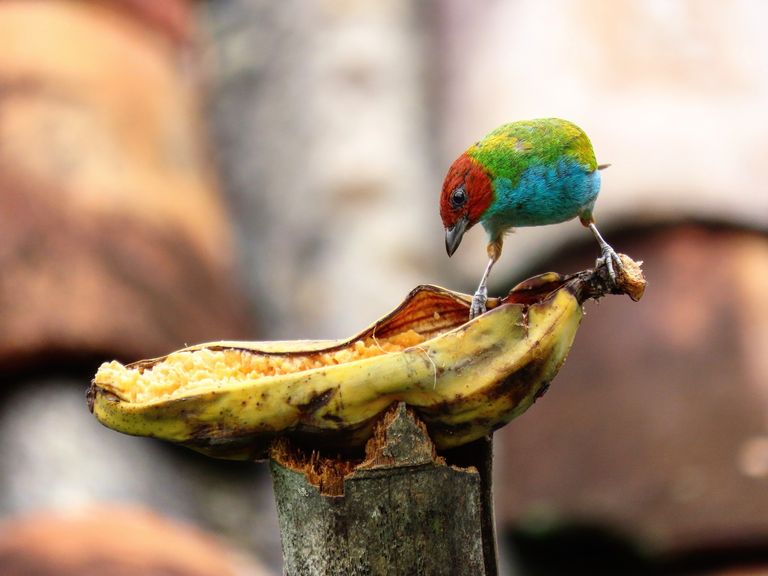
Pero eso no le quita a este P"eti tricolor", aceptar un rico bocado , como esta banana o cambur que le obsequió uno de los innumerables visitantes de su habitah.
But that does not take away from this P "eti tricolor", accepting a delicious bite, like this banana or banana that one of the innumerable visitors to his room gave him.
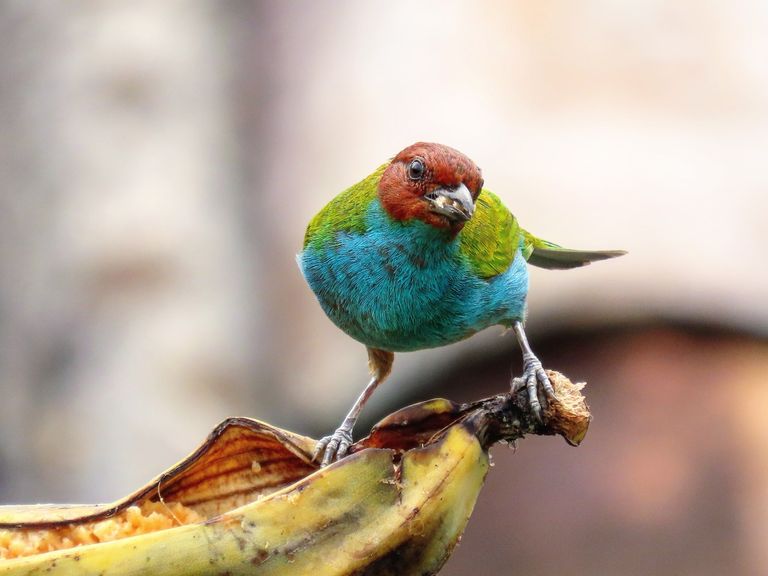
El tramo ininterrumpido más grande de selva tropical se encuentra en la cuenca del" Río Amazonas", en América del Sur. Más de la mitad de este bosque se encuentra en Brasil, que contiene alrededor de un tercio de los bosques tropicales de todo el mundo. Otro 20% del total de selvas tropicales se distribuye en Indonesia y en la Cuenca del Congo, mientras que el resto se encuentran dispersas en otras regiones.
The largest uninterrupted stretch of rainforest is found in the "Amazon River" basin in South America. More than half of this forest is found in Brazil, which contains about a third of the world's tropical forests. Another 20% of the total tropical forests are distributed in Indonesia and the Congo Basin, while the rest are scattered in other regions.
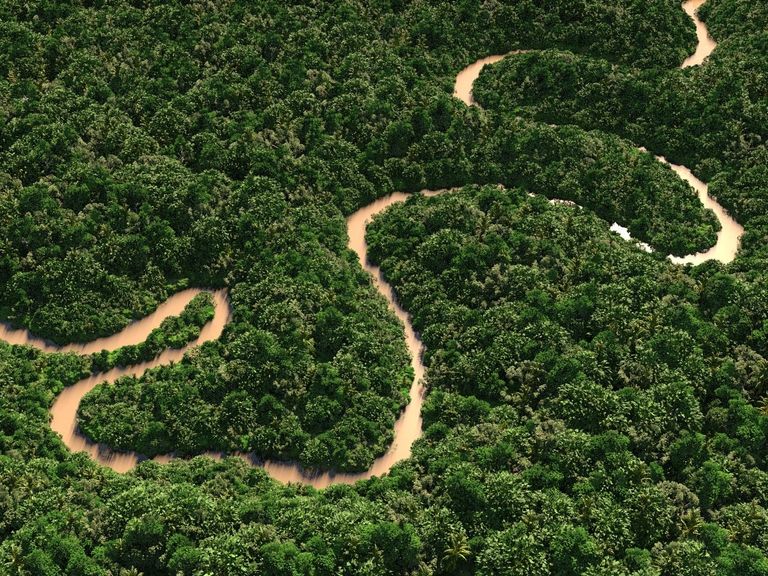
Son fotos muy bonitas. Me gustaron particularmente las londras, por acá les llamamos también nutrias o perros de agua.